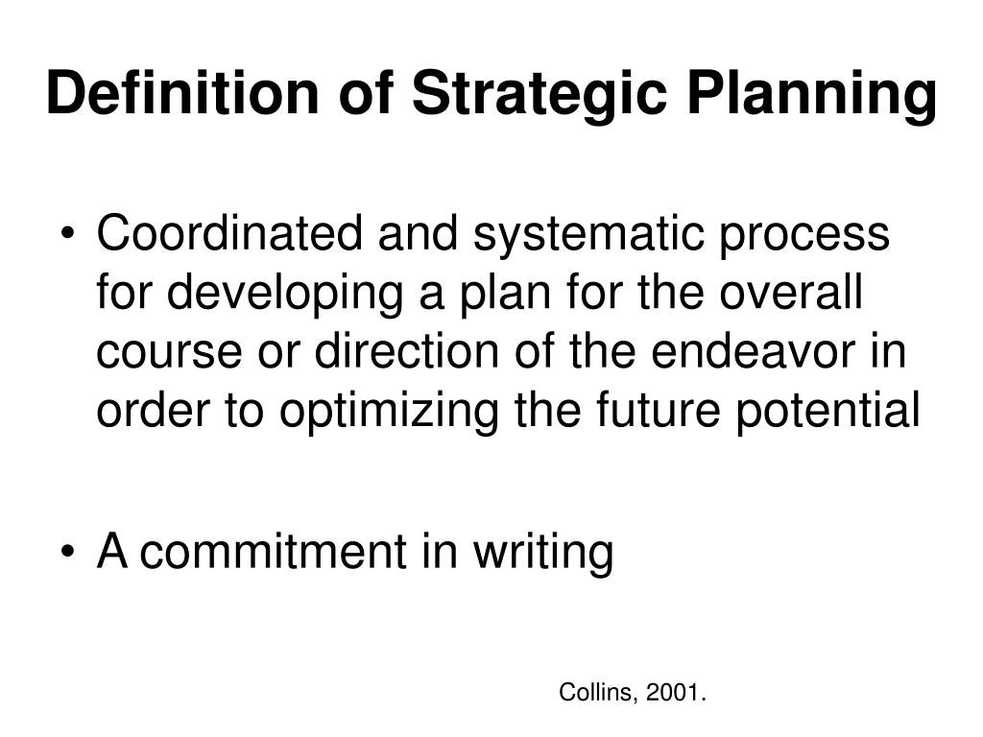
Strategic planning is a process that helps organizations define their long-term goals and objectives, and develop a plan to achieve them. It involves creating a roadmap that outlines the steps required to reach the desired outcome. The process of strategic planning is typically performed by upper-level management and involves a thorough analysis of the organization’s current situation, including its strengths, weaknesses, opportunities, and threats. The goal of strategic planning is to create a plan that is most likely to produce positive results and can be executed in a cost-efficient manner with a high likelihood of success, while avoiding undue financial risk.
The strategic planning process typically consists of three critical steps: strategy formulation, strategy implementation, and strategy evaluation. In the process of formulating a strategy, a company will first assess its current situation by performing an internal and external audit. The purpose of this is to help identify the organizations strengths and weaknesses, as well as opportunities and threats. As a result of the analysis, managers decide on which plans or markets they should focus on or abandon, how to best allocate the companys resources, and whether to take actions such as expanding operations through a joint venture or merger. Business strategies have long-term effects on organizational success. Only upper management executives are usually authorized to assign the resources necessary for their implementation.
After a strategy is formulated, the company needs to establish specific targets or goals related to putting the strategy into action, and allocate resources for the strategys execution. This is the strategy implementation phase. The implementation phase involves the actual execution of the strategy, which requires the allocation of resources, including personnel, equipment, and capital. The implementation phase is critical to the success of the strategic plan, as it is where the plan is put into action and the results are measured.
The final step in the strategic planning process is strategy evaluation. This involves assessing the results of executing the plan, in regard to a companys overall long-term goals or desires. The purpose of strategy evaluation is to determine whether the plan was successful in achieving its goals, and if not, to identify areas where improvements can be made. The evaluation process is typically performed by upper-level management and may involve the use of various performance metrics, such as return on investment (ROI), customer satisfaction, and employee engagement.
The benefits of strategic planning include enhanced communication, innovation, and performance. By creating a clear roadmap for the future, organizations can better communicate their goals and objectives to employees, customers, and other stakeholders. This can help to build trust and confidence in the organization, which can lead to increased innovation and performance. Additionally, strategic planning can help organizations to identify and address potential problems before they become major issues, which can help to reduce risk and improve overall performance.
In conclusion, strategic planning is a critical process that helps organizations to define their long-term goals and objectives, and develop a plan to achieve them. The process involves a thorough analysis of the organization’s current situation, the formulation of a strategy, the implementation of the strategy, and the evaluation of the results. The benefits of strategic planning include enhanced communication, innovation, and performance, and it is a process that is essential for the long-term success of any organization.
